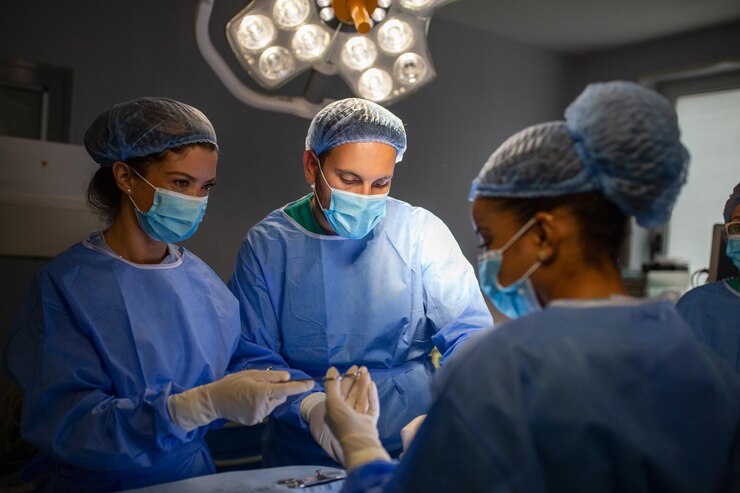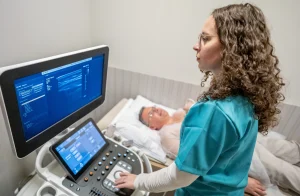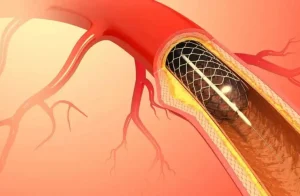Atrial fibrillation (AFib) is a common heart condition also called arrhythmia that affects millions of people worldwide. It occurs when the heart’s electrical signals become disrupted, causing the upper chambers of the heart to beat irregularly and faster than normal. This can lead to symptoms such as palpitations, shortness of breath, dizziness, and fatigue.
For some people, AFib may only last for a few minutes or hours and then go away on its own. However, in other cases, AFib can become a chronic condition that requires ongoing treatment and management. This raises the question: how long does AFib last after open heart surgery?
What is an Open Heart Surgery?
Open heart surgery involves making an incision in the chest to access the heart. It is a major surgical procedure that is typically performed to treat various heart conditions, including coronary artery disease, heart valve problems, and congenital heart defects.
During open heart surgery, the patient’s heart is temporarily stopped and a machine takes over its function. This allows the surgeon to perform necessary repairs or replacements on the heart.
What Causes AFib After Hear Surgery?
AFib can occur after any type of heart surgery, including open heart surgery. This is because the surgery itself can cause inflammation and damage to the heart tissue, which may disrupt its normal electrical signals.
In addition, patients who undergo open heart surgery often have underlying heart conditions that make them more susceptible to developing AFib. These include high blood pressure, coronary artery disease, and heart valve problems.
How Long Does AFib Typically Last After Open Heart Surgery?
One may be curious about how long atrial fibrillation lasts. Well, the duration of atrial fibrillation (AFib) following open-heart surgery is a variable experience, with a majority, approximately 94% of patients, exhibiting recovery within six weeks post-surgery.
For the 6% of patients facing prolonged AFib post-open-heart surgery, expert guidance is essential.
Consult an Electrophysiologist: Seek specialized care for tailored treatment.
Consider Cardioversion: Explore procedures to restore normal heart rhythm.
Explore Ablation: Investigate this option for long-term relief.
Understanding the duration of atrial fibrillation (AFib) after open-heart surgery is essential for a comprehensive approach to recovery. Seeking specialized care, exploring relevant interventions, and adopting personalized strategies contribute to effective and tailored management of postoperative AFib
Prevent heart problems before they start – Schedule a preventive checkup
Contact UsHow Serious Is AFib After Open Heart Surgery?
AFib’s severity after open-heart surgery hinges on individual health dynamics, with the impact varying significantly. For some, this irregular heart rhythm may manifest as a minor concern, either resolving independently or with appropriate treatment measures.
However, the spectrum widens, and untreated AFib can evolve into a serious issue, potentially leading to complications such as stroke or heart failure. The diverse outcomes emphasize the need for personalized assessments, recognizing that each patient’s unique health profile plays a pivotal role in determining the seriousness of AFib post-surgery.
Influence of Individual Health:
- AFib severity post open-heart surgery is linked to an individual’s overall health.
- Variability exists, with some experiencing manageable symptoms and others facing a higher risk of complications.
- The potential seriousness underscores the importance of personalized monitoring tailored to each patient’s health dynamics.
Monitoring for Early Detection:
- Actively monitoring symptoms after open-heart surgery is imperative for early AFib detection.
- Timely reporting of symptoms to the healthcare team is crucial for prompt intervention.
- Early detection and intervention significantly contribute to preventing potential complications and improving overall prognosis.
In summary, AFib’s seriousness after open-heart surgery is a nuanced aspect, contingent on individual health factors. Acknowledging this diversity, personalized monitoring and timely intervention become critical components in optimizing the recovery trajectory and mitigating potential complications associated with postoperative AFib.
Prevent heart problems before they start – Schedule a preventive checkup
Contact UsAre Atrial Flutter And AFib The Same?
Atrial flutter is another type of irregular heart rhythm that is similar to AFib. Both conditions involve abnormal electrical signals in the upper chambers of the heart. However, they differ in their specific patterns and causes.
Some of the main differences between the two include:
- Atrial flutter has a more regular pattern while AFib is more irregular.
- Atrial flutter is caused by a single electrical circuit, while AFib can have multiple circuits throughout the heart.
Medications used to treat AFib may not be effective for atrial flutter, and vice versa.
In some cases, patients may experience both AFib and atrial flutter after open heart surgery. It is important for healthcare providers to accurately diagnose and treat these conditions to manage symptoms and prevent complications.
Can Artial Flutter Go By Itself or By Treatment?
In some cases, atrial flutter may resolve on its own without treatment. However, patients need to seek medical attention if they experience symptoms or are diagnosed with the condition.
According to the survey, around 50% of the patients with atrial flutter saw their symptoms disappear within a year without any treatment. However, for those who experience recurring or persistent atrial flutter, medical intervention may be necessary.
Final thoughts
The duration and severity of atrial fibrillation (AFib) after open-heart surgery present a variable landscape. While the majority of patients experience recovery within six weeks, a small percentage may face prolonged AFib, necessitating specialized care and interventions.
Distinguishing between AFib and atrial flutter, both common irregular heart rhythms post-surgery is crucial for accurate diagnosis and appropriate treatment. While some cases may resolve without intervention, healthcare providers play a pivotal role in managing symptoms and preventing complications.
The nuanced nature of these conditions highlights the need for individualized care and continuous medical attention to ensure the best possible outcomes for patients navigating post-open-heart surgery challenges.







